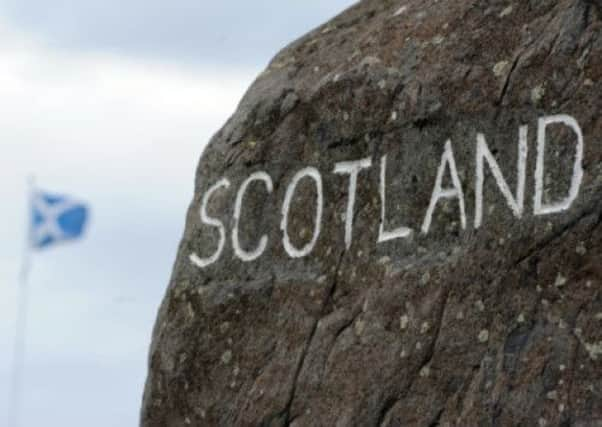Leaders: Neither up nor down | Dundee’s ambition


First, of course, there is the small matter of winning a referendum, and this coming week sees a landmark moment in that campaign. The publication of the SNP’s white paper on independence will give Scots the answers to many of the questions they have been asking about independence since Alex Salmond won his famous Holyrood parliament majority back in 2011. At least, that was what people had hoped for from this white paper. We shall not know for certain until the actual document – all 670 pages of it – is published on Tuesday, but the early indications are that on some key issues the white paper will be less than definitive.
This is perhaps inevitable given the nature of the SNP’s current vision for independence. Gone is the 19th-century nation-state nationalism of the 1970s SNP. Gone too is the more internationalist “Independence in Europe” approach that succeeded it, and the resulting enthusiasm to ditch the pound and instead embrace the euro. And definitely ditched is the scarcely veiled contempt for all things British that allowed John Swinney to declare in his leadership campaign in 2003 that he intended to “tell the Brits to get off”. On offer now to the Scottish people is a new kind of 21st-century independence that recognises that the optimum state for a modern country is one that, to a large degree, shares sovereignty and competencies with its neighbours. The SNP’s current plan includes a great deal of shared co-operation with the very Whitehall power brokers from whom the party is first seeking a fundamental split. On a whole range of issues –the monarchy, currency, macroeconomic policy, security, financial regulation, diplomacy – the Nationalists see independence as a partnership with the rest of what currently makes up the UK. What the SNP is offering, in a nutshell, is “Independence in Britain”.
Advertisement
Hide AdAdvertisement
Hide AdThe problem the party faces, however, can perhaps be described as The Grand Old Duke of York Dilemma. The SNP must first march voters up to the top of the hill of full nation-state independence, before it marches them half-way down again to a more sensible level of shared sovereignty. And, currently, Scottish voters do not like the idea of climbing all the way to that summit.
The British state, meanwhile, for obvious reasons of self-preservation, shows little inclination to making the SNP’s job easier. On the crucial question of what currency an independent Scotland would use, and what influence it would have over how that currency would be managed, the UK is being deliberately vague. This leaves the SNP little option but to declare, by simple assertion, what it anticipates the Whitehall position would be. Is this really a firm enough platform from which to win over the remaining undecideds in the Scottish electorate? Especially when the SNP’s fellow travellers in the Yes Scotland coalition have no hesitation in saying the SNP’s currency strategy is plain wrong?
The likely upshot of all of this is that when Alex Salmond stands up at the Glasgow Science Centre on Tuesday to unveil his white paper, some of the key questions in the minds of Scottish voters will remain unanswered. This is not where the SNP wanted to be with ten months to go before its date with destiny.
Dundee’s ambition
WHEN the announcement was made last week that Hull would be the UK City of Culture in 2017, there was deep disappointment in the only Scottish city on the short-list, Dundee. But, pausing only to congratulate its Humberside rival on a great success, it has not taken the City of Discovery long to pick itself up, dust itself off and break into a run again.
The view in Dundee is that the 2017 title was lost because the city’s arts infrastructure and its creative dynamism was already well-developed, and the judges felt the accolade would make more of an impact in a city with a less realised potential. That is a reasonable conclusion, and it is right that it has not dampened Dundee’s ambitions.
Now, as we report today, the people behind the bid are setting their sights even higher, with an attempt to land the title of European Capital of Culture in 2023. This is a bold and admirable aim, and those responsible should be congratulated for their vision.
It is not a wildly implausible goal. Once – as with Glasgow’s reign in 1990 – the title went to some of Europe’s biggest cities. This is no longer the case – recent recipients have included Turku (Finland) and Maribor (Slovenia).
There is all to play for. Dundee will have its moment yet.